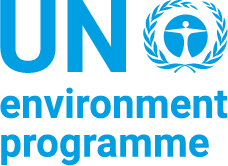Business-as-usual infrastructure expansion has contributed to habitat degradation and sharp declines in biodiversity.
Fossil fuel pipelines and roads fragment habitats and restrict wildlife movement. Chemicals used in oil drilling and hydraulic fracturing for natural gas often spill into aquifers and surface waters, killing species, harming fisheries, and reducing tourism. Coal and mineral mines discharge arsenic, copper, and lead that can make streams as acidic as vinegar. Water diversions reduce fishing yields and local food availability. The pavement, roads, and built infrastructure deployed worldwide pressures surrounding forests and agricultural lands. Global biodiversity trends are deeply concerning—one in five countries is at risk of ecosystem collapse due to biodiversity decline.
Nature is indispensable for human livelihood and good quality of life.
Healthy ecosystems provide countless benefits contributing to human life, known as ecosystem services. Examples include products as food and water, crop pollination, water filtration, medicinal compounds, climate regulation and flood protection. Worldwide, the value of these services is estimated at more than one and a half times the global GDP.





